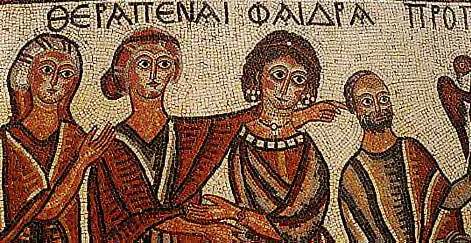|
Where does the quote come from? From the play Hippolytus,
when the nurse was talking to Pheadra. She was giving her advice
and revising what she had said to her earlier in order to make
her feel better. Translation by E. P. Coleridge:
NURSE: My queen, 'tis true thy tale of woe, but lately told,
did for the moment strike me with wild alarm, but now I do reflect
upon my foolishness; second thoughts are often best even with
men. Thy fate is not uncommon nor past one's calculations; thou
art stricken by the passion Cypris sends. Thou art in love; what
wonder? So are many more.
|

